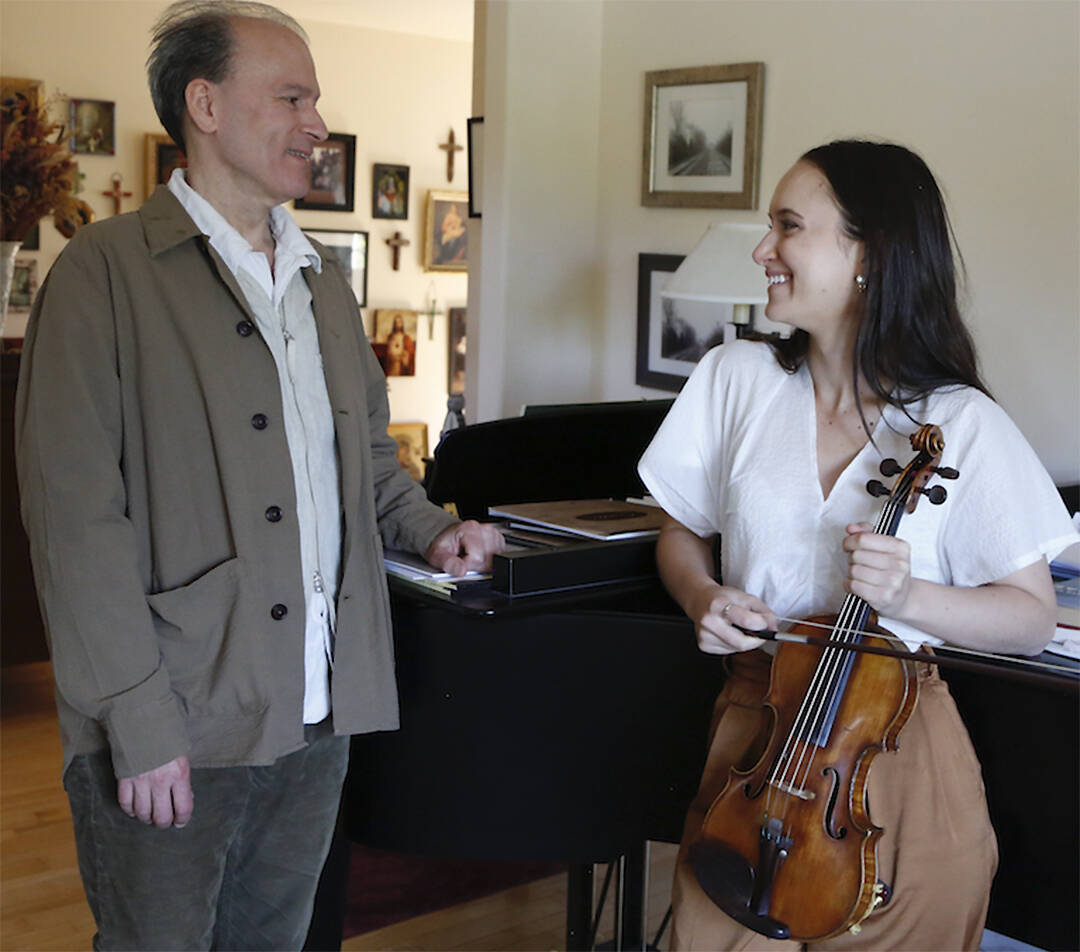Paradise is closer than one may think.
For the Stoyanovich family, nearly all professional classical musicians, “paradise” is the love found between friends, family and generated from community, belonging and spirituality.
Local musicians Patrick and Sophia Stoyanovich, a father-daughter pair of nationally recognized classical artists, have released an original debut album, “Rue Paradis,” that explores places where “paradise” and the sublime manifest on Earth — namely, Paris and Bainbridge Island.
Patrick composed the piece and violinist Sophia performed it, along with cellist Aaron Wolff and pianist Derek Wang, Sophia Stoyanovich’s partner. As a composer, Patrick has compiled a large body of work, but “Rue” stands out as his first album released with Bridge Records, one of the oldest independent classical music labels in the country.
Patrick and Sophia explained that the album’s ethos was initially inspired by a few special emotional connections in the musicians’ lives. The first piece is about the paradise of love, in its many forms: romantic love from Patrick with his wife, Elizabeth; and love within musical inspiration, as in with a close family friend and former student of Patrick’s, who lives on the real-life Rue de Paradis in Paris where Patrick was trained as a composer.
The second piece emanates from a deep sense of religious reverence honed during Patrick’s work with St. James Cathedral in Seattle— a darker sensation of paradise that is “otherworldly and uncomfortable, that maybe we don’t know how to comprehend or believe in sometimes,” Sophia explained.
The album arose when those two ideas of “paradise” began to coalesce, and culminated in the third movement of the album: the paradise within a human memory, the joy of presence in a beautiful day-to-day experience.
“When I think about those two things, and I put those together, this is our different experiences of ‘paradise’ — it can be personal or it can be the love one feels for one another,” Patrick said. “Then that gets combined with some of these roads that I walk here on Bainbridge because I’m a tremendous walker — composers always walk — and many of the roads around here are really pretty — too many of them are really paradise. That was the genesis of it; those three things.”
Sophia said that her father’s artistic style can strike a balance between profound emotions and hummable melody. “[His] music has a lyrical sense to it that’s very inviting to listeners. A lot of times, new music can be fun or energizing, but it doesn’t necessarily stick with you — it doesn’t make your soul sing,” she said. “I really try and find that in classical music, and I think my dad has a gift at doing that.”
“Rue” is Sophia’s first record, which was daunting for more than the usual reasons, she said. Creating an album is a huge project, but unlike many other classical compilations, this was the first time the music of “Rue” had ever been recorded — there were no prior performances to draw inspiration from, reference or follow as practice. Additionally, her father’s work tends to be operatic and conceptual, which can be challenging to translate.
The two artists’ filial connection proved essential for the piece’s creation, they agreed. “When you know somebody on that intimate of a basis, it really does make a musical connection and a huge difference in expression,” Patrick said. “I told Sophia, ‘If Hilary Hahn wanted to play this piece at Carnegie Hall, and I have my choice between you and her, I would choose you.’ The musical connection and what it means to me would be so much more pure. I wrote these pieces for her, and her technique, and what she sounds like.”



